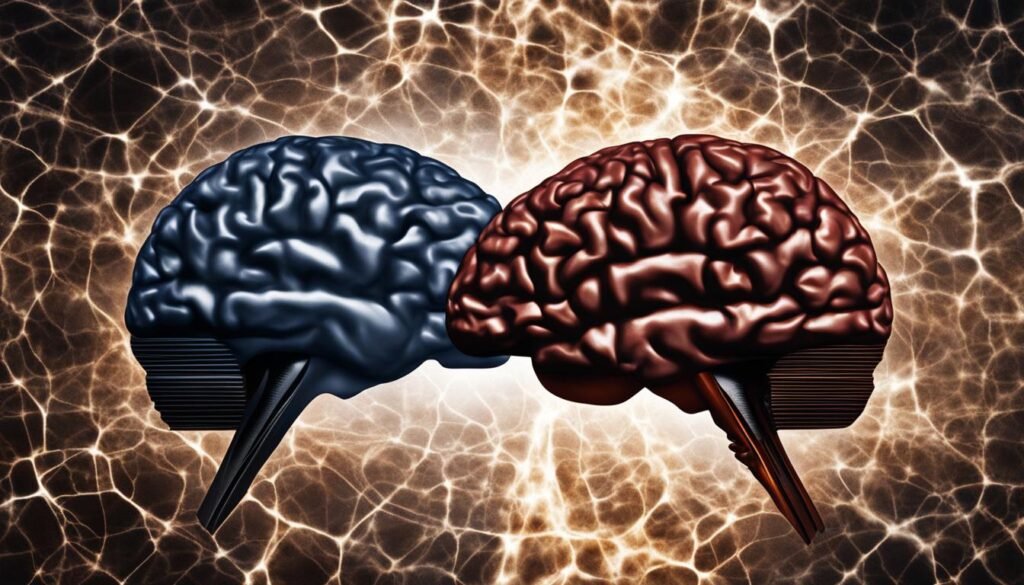Drinking alcohol for a prolonged period of 20 years can have significant long-term effects on the body. It is essential to understand the physiological changes and health risks associated with two decades of alcohol consumption.
Alcohol abuse over two decades can lead to damage in various systems within the body, including the liver, pancreas, and digestive system. Additionally, it can weaken the immune system, affect the central nervous system, and contribute to circulatory issues.
Mental and emotional well-being are also impacted by prolonged alcohol abuse. Persistent changes in mood, insomnia, and cognitive impairment are common consequences of long-term alcohol use.
Gender and age play a significant role in the effects of drinking over a 20-year period. Women tend to be more affected by alcohol due to their bodies having less tissue to absorb it. Older individuals, with decreased body water and increased body fat, are more susceptible to the harmful consequences of long-term alcohol consumption.
Recognizing the risks associated with long-term alcohol consumption is crucial for individuals to make informed decisions about their drinking habits and prioritize their overall health and well-being.
Key Takeaways:
- The long-term effects of alcohol consumption over 20 years can lead to damage in various body systems, including the liver, pancreas, and digestive system.
- Alcohol abuse can weaken the immune system, affect the central nervous system, and contribute to circulatory issues.
- Prolonged alcohol use can lead to changes in mood, insomnia, and cognitive impairment.
- Gender and age play a significant role in the effects of long-term alcohol consumption, with women and older individuals being more susceptible to harm.
- Understanding the risks associated with long-term alcohol consumption can help individuals make informed decisions and prioritize their overall health and well-being.
Long-Term Effects on Body Systems
After 20 years of drinking, alcohol can have a profound impact on various body systems. It can cause physiological changes that may lead to long-lasting health risks. Let’s take a closer look at how alcohol affects the body after two decades of consumption.
Liver Damage: One of the most significant health problems caused by 20 years of drinking is the damage to the liver. Prolonged alcohol consumption can result in inflammation and scarring, leading to conditions like alcoholic hepatitis, cirrhosis, and liver cancer.
Pancreatic and Digestive Issues: Alcohol abuse over two decades can also harm the pancreas and digestive system. It may cause inflammation of the pancreas (pancreatitis), leading to digestion problems and malnutrition.
Immune System Weakened: Another physiological change from long-term alcohol consumption is a weakened immune system. This makes individuals more susceptible to infections, such as pneumonia and tuberculosis.
Central Nervous System: Alcohol affects the central nervous system, leading to neurological disorders and cognitive impairments. Memory loss, difficulty concentrating, and changes in behavior are common effects from 20 years of drinking.
Circulatory Issues: Long-term alcohol abuse can also contribute to circulatory problems, such as high blood pressure, irregular heartbeat, and increased risk of cardiovascular diseases.
“After 20 years of drinking, our bodies undergo physiological changes that can lead to long-lasting health risks. Damage to the liver, pancreas, digestive system, a weakened immune system, and effects on the central nervous system and circulatory system are among the health problems caused by alcohol consumption over two decades.”
To visually illustrate the effects of long-term alcohol consumption, refer to the table below:
| Physiological Changes | Long-Lasting Health Risks |
|---|---|
| Liver damage | Alcoholic hepatitis, cirrhosis, liver cancer |
| Pancreatic and digestive issues | Pancreatitis, digestion problems, malnutrition |
| Weakened immune system | Increased vulnerability to infections |
| Central nervous system effects | Neurological disorders, cognitive impairments |
| Circulatory issues | High blood pressure, irregular heartbeat, cardiovascular risks |
Understanding these physiological changes and long-lasting health risks is crucial in recognizing the potential harm that can result from 20 years of drinking. It’s important to prioritize our overall health and well-being and make informed decisions about our alcohol consumption.
Mental and Emotional Impact
The effects of alcohol abuse over a span of two decades can extend beyond physical health. Prolonged drinking can have a significant impact on mental and emotional well-being, contributing to a range of health problems caused by 20 years of drinking.
One of the prevalent mental health concerns associated with long-term alcohol use is mood changes. Individuals may experience persistent anxiety, irritability, and even depression due to the alcohol-related damage over 20 years. These changes in mood can significantly affect day-to-day functioning and overall quality of life.
Sleep disturbances are another common issue experienced by those who have been drinking for 20 years. Insomnia and other sleep concerns can further exacerbate mental health difficulties, leading to a vicious cycle where poor sleep contributes to worsening emotional well-being.
Beyond affecting mood and sleep, long-term alcohol use can have detrimental effects on cognitive function. Memory problems, difficulty concentrating, and decreased cognitive performance are frequently reported by individuals who have been drinking for two decades. These cognitive impairments can interfere with work, relationships, and overall life satisfaction.

Furthermore, extended alcohol abuse can strain relationships and lead to increased tension with loved ones. Alcohol-induced behavioral changes and the prioritization of drinking over other responsibilities can significantly impact interpersonal dynamics and strain the bonds with family and friends.
Recognizing these mental and emotional consequences is crucial in understanding the full scope of the health problems caused by 20 years of drinking. Seeking support from healthcare professionals, counseling services, and support groups is vital in addressing and managing these challenges.
| Mental and Emotional Consequences | Impact |
|---|---|
| Anxiety and irritability | Changes in mood |
| Insomnia and sleep concerns | Disturbed sleep patterns |
| Cognitive impairments | Memory problems, difficulty concentrating |
| Relationship strain | Tension with loved ones |
Gender and Age Considerations
When it comes to the effects of drinking over a 20-year period, gender and age play a significant role. Understanding these factors is crucial in comprehending the impact of long-term alcohol consumption on the body.
Gender Differences in Drinking:
Women tend to be more affected by alcohol compared to men. This is partly due to the fact that women have a higher percentage of body fat and less tissue to absorb alcohol. As a result, alcohol is distributed more rapidly and reaches higher concentrations in their bloodstream. This increased sensitivity to alcohol can lead to a higher risk of health issues after two decades of drinking.
Age-Related Effects of Alcohol Consumption:
Older individuals, especially those with decreased body water and increased body fat, are more vulnerable to the harmful consequences of long-term alcohol consumption. Age-related changes in metabolism and decreased liver function can impede the body’s ability to process alcohol efficiently. As a result, the effects of alcohol may be more pronounced and the risk of developing alcohol-related health problems increases.
To illustrate the impact of gender and age on long-term alcohol consumption, let’s take a closer look at how alcohol affects different age groups:
| Age Group | Gender | Effects of Long-Term Alcohol Consumption |
|---|---|---|
| Young Adults (18-25) | Male | Increased risk of engaging in risky behaviors and alcohol-related accidents. Potential liver damage and impaired cognitive function. |
| Young Adults (18-25) | Female | Higher susceptibility to alcohol-related liver disease, breast cancer, and cognitive impairment. Increased risk of alcohol-induced blackouts and negative emotional consequences. |
| Adults (26-64) | Male | Elevated risk of liver disease, cardiovascular issues, and alcohol addiction. Potential negative effects on mental health and relationships. |
| Adults (26-64) | Female | Increased vulnerability to liver disease, breast cancer, and cognitive decline. Heightened risk of mood disorders and alcohol dependence. |
| Elderly (65+) | Male | Greater susceptibility to liver diseases, heart problems, and alcohol-related dementia. Increased risk of falls and injuries. |
| Elderly (65+) | Female | Risk of liver damage, breast cancer, and cognitive impairment. Higher likelihood of experiencing depression and worsening of age-related health conditions. |
Understanding these gender and age differences in alcohol consumption can help us recognize the importance of adopting healthier drinking habits and seeking support if necessary. By prioritizing our overall health and well-being, we can minimize the long-term effects of alcohol and improve our quality of life.

Conclusion
After two decades of drinking, the long-term effects on the body can be profound. From damage to vital organ systems to mental and emotional well-being, the consequences of alcohol abuse over 20 years are significant.
It is crucial for individuals to recognize the health risks associated with long-term alcohol consumption and make informed decisions about their drinking habits. Prioritizing overall health and well-being is essential, and choosing to reduce or abstain from alcohol can promote a healthier lifestyle.
If you or someone you know is struggling with alcohol abuse, seeking support is vital. There are many resources available, such as support groups, counseling, and treatment centers, that can provide the guidance and assistance needed to overcome addiction and mitigate the long-term effects of alcohol consumption.
It is never too late to make a positive change and prioritize your health. By understanding the health consequences of drinking for 20 years, individuals can take control of their well-being and strive for a happier, healthier future.
FAQ
What are the long-term effects of alcohol consumption over 20 years?
Drinking alcohol for a prolonged period of 20 years can have significant long-term effects on the body. It can lead to damage to various organ systems, weaken the immune system, affect the central nervous system, and contribute to circulatory issues.
How does alcohol abuse over two decades impact mental and emotional well-being?
Prolonged alcohol abuse can cause persistent changes in mood, including anxiety and irritability, as well as insomnia and other sleep concerns. It can also affect cognition, memory, and concentration and contribute to increased tension in relationships.
Do gender and age play a role in the effects of 20 years of drinking?
Yes, women tend to be more affected by alcohol as their bodies have less tissue to absorb it. Older individuals, especially those with decreased body water and increased body fat, are more susceptible to the harmful consequences of long-term alcohol consumption.
What should I consider when evaluating the impact of 20 years of drinking on the body?
It is important to consider factors such as gender and age when evaluating the effects of long-term alcohol consumption. Women and older individuals may be more susceptible to the harmful consequences of sustained alcohol abuse.
Why is it important to recognize the risks associated with long-term alcohol consumption?
Understanding the risks associated with long-term alcohol consumption is crucial for individuals to make informed decisions about their drinking habits and seek support if necessary. Prioritizing overall health and well-being and making choices that promote a healthy lifestyle is essential.
